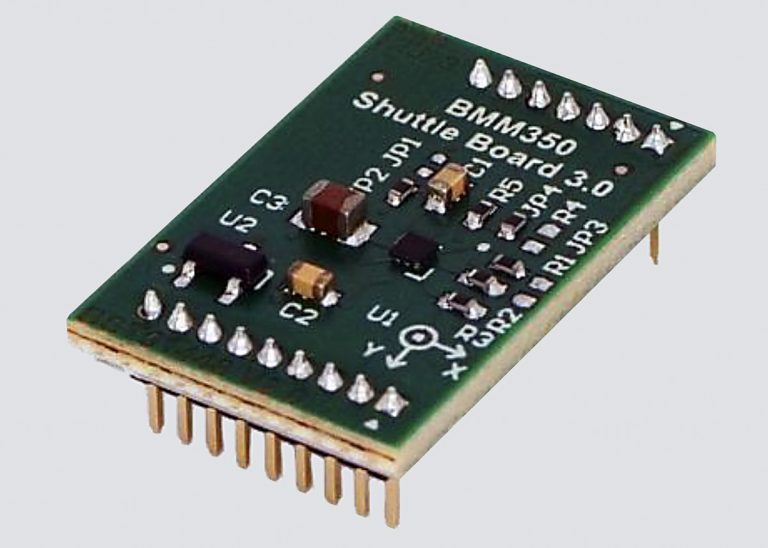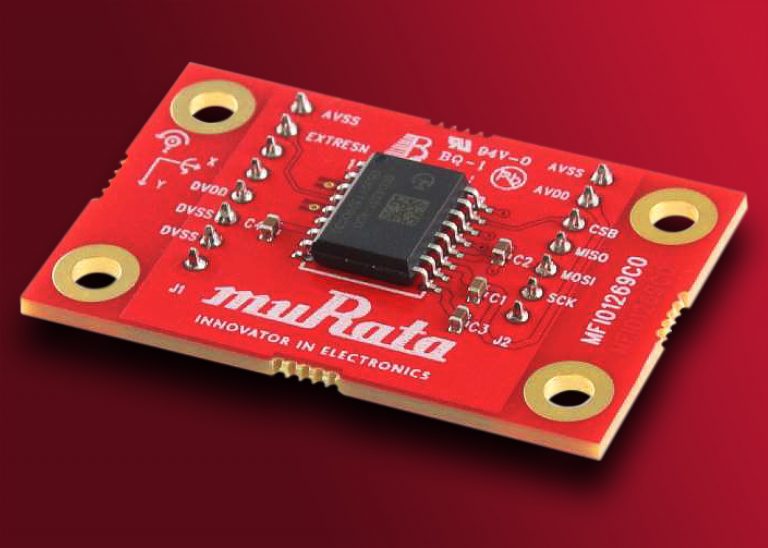FTM 23-v development boards
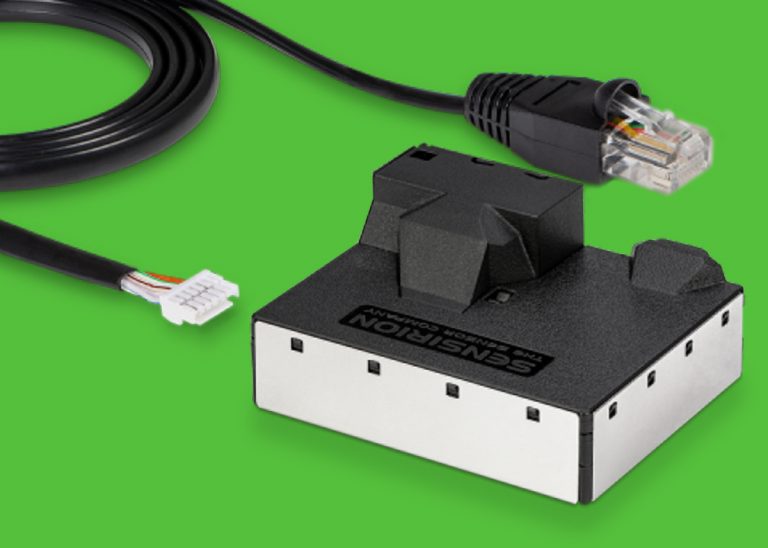
The SEK-SEN5x kit provides a convenient format for evaluating the operation of the SEN5x air quality sensor module. It performs relative humidity and temperature measurements, and tracks volatile organic compounds, nitrogen oxides, and concentrations of particulate matter. The sensor module is equipped with on-board algorithms for converting raw gas measurements to air-quality index outputs, and for accelerating and compensating humidity and temperature readings.
The kit includes:
- SEN55 gas sensor
- Adapter cable
- Jumper wire set
Users of the kit also require an SEK-SensorBridge board.

The STEVAL-MKI235KA evaluation kit is based on the LIS2DUXS12 inertial module with a Qvar electrostatic sensor and three different electrodes. It is compatible with the STEVAL-MKI109V3 MEMS sensing motherboard.
The kit provides the complete LIS2DUXS12 pinout and comes ready-to-use with the required decoupling capacitors on the power-supply line.
The STEVAL-MKI109V3 motherboard includes a high-performance 32-bit microcontroller functioning as a bridge between the sensor and a PC, on which it is possible to use the downloadable graphical user interface, Unico-GUI, or dedicated software routines for custom applications.
It is also possible to plug the board into an X-NUCLEO-IKS01A3 expansion board.
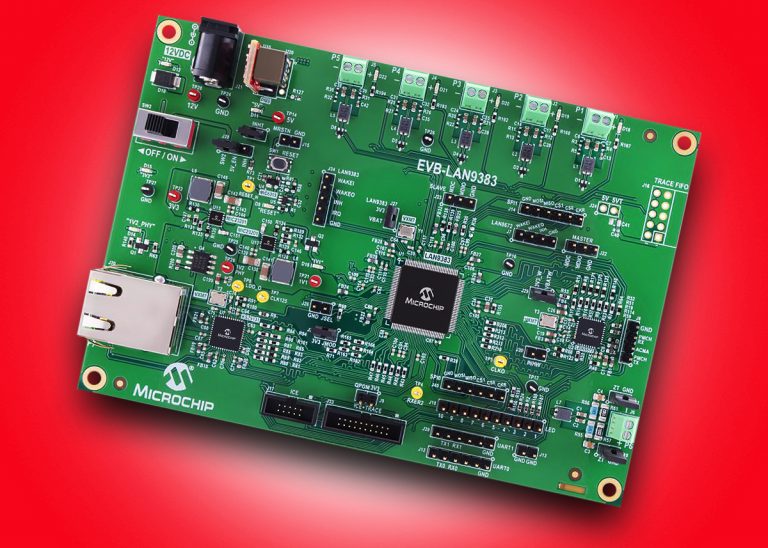
The LAN9383 Evaluation Board provides a convenient and compact evaluation platform for a seven-port, safe and secure family of time-sensitive networking (TSN) Gigabit Ethernet switches. This evaluation board comes with five integrated 100BASE-T1 PHYs and an RGMII port that connects to a KSZ9131 PHY: this enables a standard 100/1000BASE-T uplink. An onboard LAN8672 10BASE-T1S PHY supports a multi-drop 10BASE-T1S network with up to eight nodes.
Functional safety-ready, the board includes an Arm® Cortex®-M7 core-based sub-system with integrated Flash code memory.
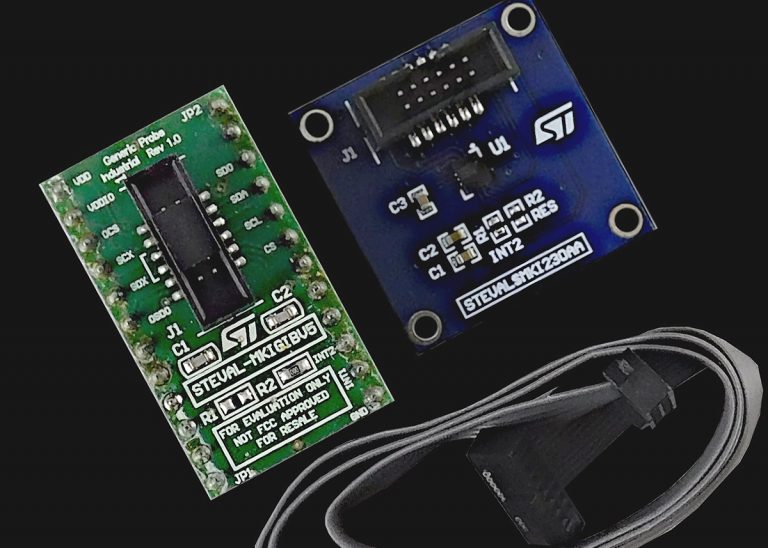
The STEVAL-MKI230KA evaluation kit consists of the STEVAL-MKI230A main sensing board, with a square PCB, which mounts the ISM330IS 3-axis accelerometer and 3-axis gyroscope with embedded ISPU, the STEVAL-MKIGIBV5 adapter board, and a flat cable. The main board is connected to the adapter board through the flat cable to make it compatible with the STEVAL-MKI109V3.
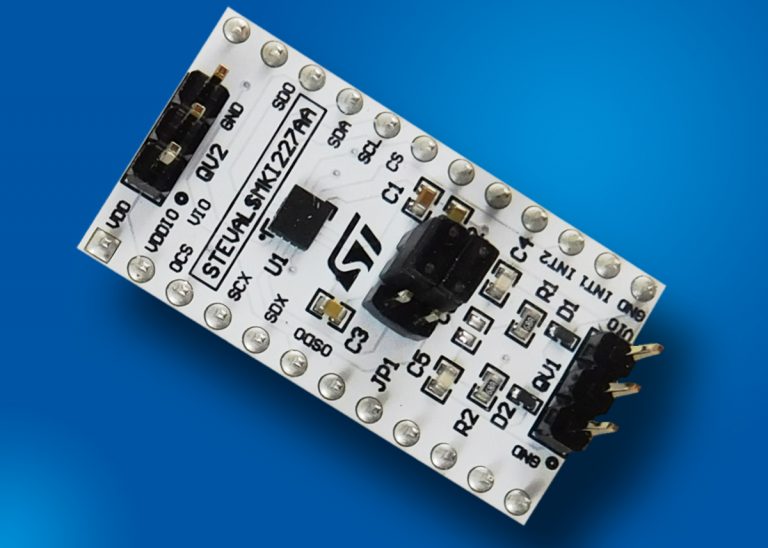
The STEVAL-MKI227KA evaluation kit is based on the LSM6DSV16X inertial module. It provides a Qvar electrostatic sensor, and three electrodes supporting finger swipe and generic functions. It is compatible with the STEVAL-MKI109V3 microcontroller motherboard.
It is possible to configure the LSM6DSV16X by changing the position of the jumper. The kit supports the entire LSM6DSV16X pinout, and comes ready-to-use with the required decoupling capacitors on the power-supply line.
The STEVAL-MKE00xAA can be plugged onto the STEVAL-MKI227A board. This adapter is supported by the STEVAL-MKI109V3 motherboard, which includes a high performance 32-bit MCU functioning as a bridge between the sensor and a PC, on which it is possible to use the downloadable graphical user interface Unico-GUI, or dedicated software routines for customized applications.
It is also possible to plug the board onto the X-NUCLEO-IKS01A3 expansion board.
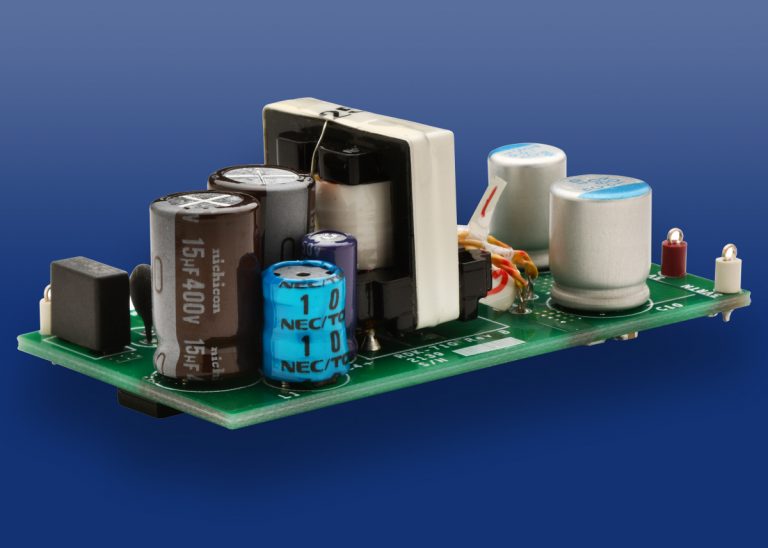
The RDK-710 is a board that implements the RDR-710 reference design report for a 12 W dual-output, open-frame power supply for appliances.
The output options are 5 V/1.4 A or 12 V/0.42 A from an input-voltage range of 85 V to 265 V ac. Featuring built-in synchronous rectification, the RDK-710 achieves efficiency of more than 85% at the nominal ac input.
No-load input power is less than 10 mW. Standby input power is less than 260 mW at a 5 V/30 mA load.
Video links
InnoSwitch3-TN for auxiliary power supplies

The AR0822NPSC10SMEAH3-GEVB sensor board for the 8 Mpixel AR0822 from onsemi provides a convenient platform for evaluating the image sensor’s embedded High Dynamic Range feature and its low power consumption.
The board can be interfaced to the onsemi Demo 3 evaluation board, or to the AP1302 evaluation board stacked on the Demo 3 board. The combined kit uses the DevSuite software from onsemi to configure the system. The software provides a comprehensive set-up interface, and offers a flexible way to evaluate the sensor’s features and capabilities.
The sensor board comes with a lens suitable for evaluation. Designers can use their own lens as long as it is compatible with the mechanical and optical requirements of the sensor.
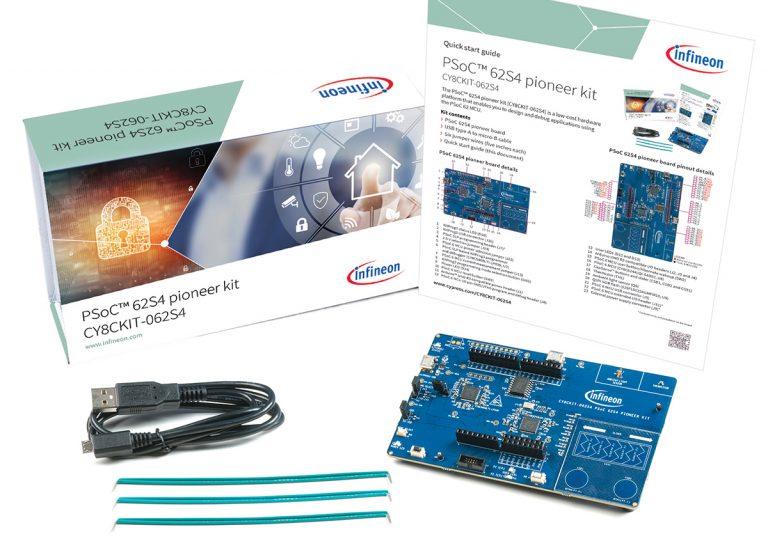
The PSoC™ 62S4 Pioneer Kit is a low-cost hardware platform that enables engineers to develop products based on the PSoC™ 62 microcontroller and debug their designs. ModusToolbox™ software provides support for application development.
The kit includes the CY8C62x4 PSoC 62 Performance Line MCU, which features:
- 150 MHz Arm® Cortex®-M4 and 100 MHz Arm Cortex-M0+ cores
- 256 kbytes of Flash
- 128 kbytes of SRAM
- Programmable analog blocks including two 12-bit SAR ADCs
- Programmable digital blocks
- Full-Speed USB interface
- Serial memory interface
- CAN-FD interface
- CAPSENSE™ capacitive sensing
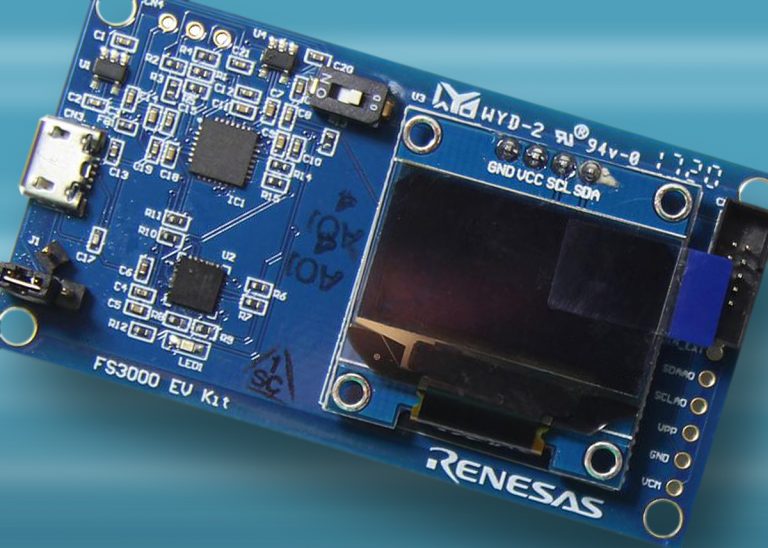
The FS3000-EVK enables the quick discovery of the sensitivity and response of the FS3000 module to air flows. The kit includes a FS3000 module adapter board, together with an extension cable to enable the engineer to take measurements at the point of interest, such as inside an air duct.
The kit is powered by a 3.3 V battery supply. It is supplied with an interface board that has an OLED display. Renesas software enables logging of the sensor’s measurement data.
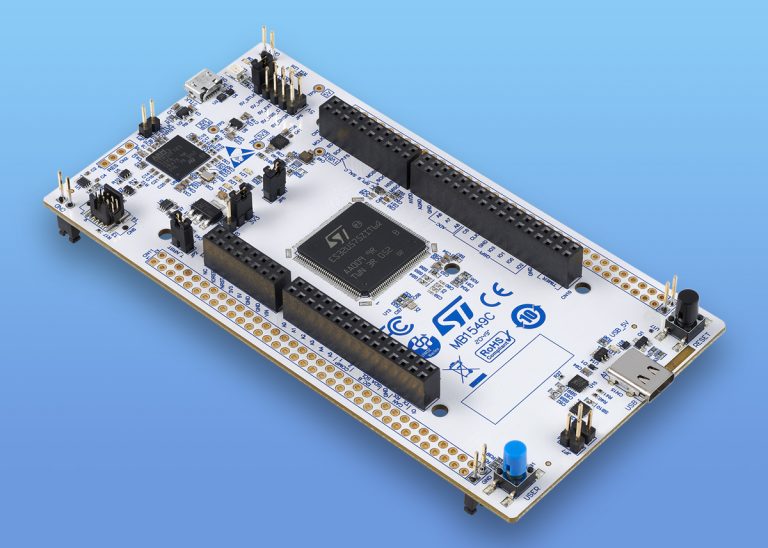
The STM32 Nucleo-144 board provides an affordable and flexible way for users to try the various combinations of performance and power consumption features provided by the STM32U5A5ZJ microcontroller.
The ST Zio connector, which extends Arduino® Uno V3 connectivity, and the ST morpho headers provide an easy means of expanding the functionality of the Nucleo open development platform with a wide choice of specialized shields. The STM32 Nucleo-144 board does not require any separate probe as it integrates the ST-LINK debugger/programmer.
The STM32 Nucleo-144 board is supported by the comprehensive free STM32 software libraries and examples available with the STM32Cube MCU package.
Features of the kit include:
- Three user LEDs
- Two user and reset push-buttons
- 32.768 kHz crystal oscillator
- Flexible power-supply options: ST-LINK USB VBUS, USB connector, or external sources
- On-board ST-LINK debugger/programmer with USB re-enumeration capability: mass storage, Virtual COM port, and debug port
- Support for a wide choice of integrated development environments, including IAR Embedded Workbench®, MDK-ARM, and STM32CubeIDE.


